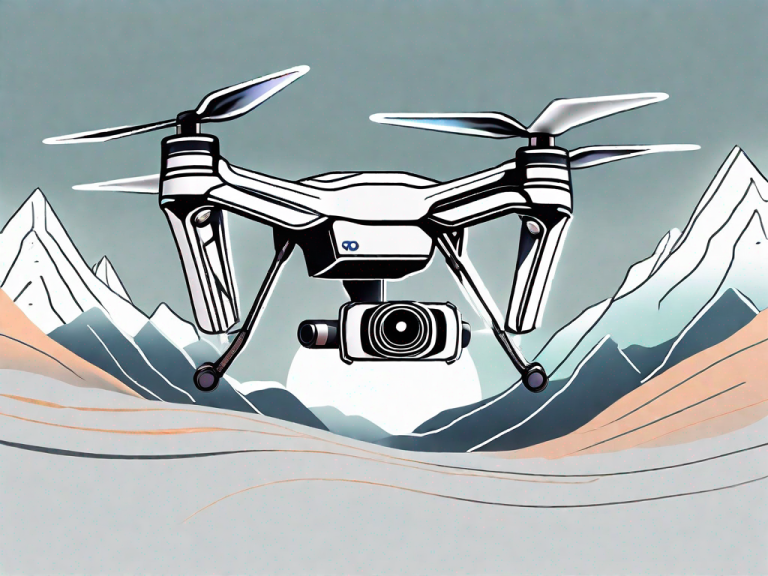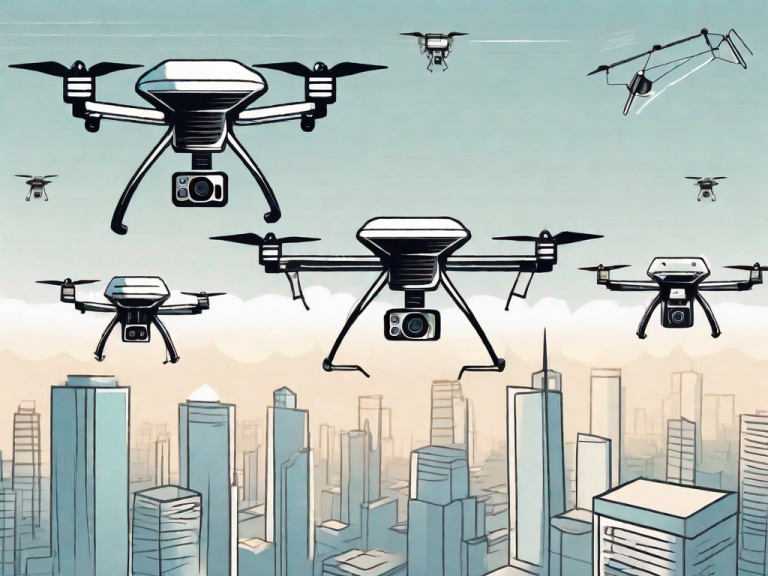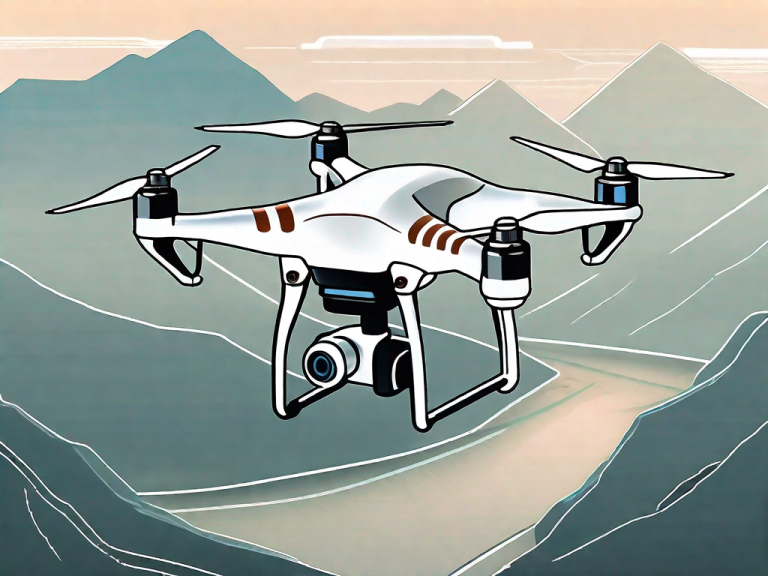In recent years, the use of drones in the solar industry has become increasingly prevalent. These unmanned aerial vehicles have proven to be essential tools for inspecting solar panels and ensuring their optimal performance. The advancement of drone technology has revolutionized the way solar inspections are conducted, improving efficiency and accuracy. If you’re in the market for a drone specifically designed for solar inspection, there are several factors to consider to ensure you choose the best one for your needs.
Why Solar Inspection Drones are Essential for the Industry
Solar inspection drones have quickly become an indispensable tool for the solar industry. These drones provide an efficient and cost-effective solution for inspecting solar panels, identifying potential issues, and ensuring maximum energy output. Traditional manual inspections are time-consuming, labor-intensive, and often require expensive equipment. By using drones, solar companies can save both time and money while achieving more accurate and comprehensive results.
One of the key advantages of using drones for solar inspections is their ability to access hard-to-reach areas. Drones equipped with high-resolution cameras can easily capture detailed images of solar panels from various angles, including the top surfaces, which are difficult to inspect manually. This allows for a thorough assessment of the panels’ condition and potential performance issues.
In addition to their ability to access hard-to-reach areas, solar inspection drones also offer real-time monitoring capabilities. With the use of advanced sensors and data analysis software, these drones can provide instant feedback on the performance of solar panels. This allows for early detection of any issues or malfunctions, enabling prompt maintenance and repairs to ensure optimal energy production.
Furthermore, solar inspection drones can contribute to improving safety in the industry. Manual inspections often involve technicians climbing on rooftops or using ladders, which can be risky and potentially lead to accidents. By utilizing drones, companies can minimize the need for human intervention in hazardous situations, reducing the risk of injuries and ensuring a safer working environment for employees.
The Importance of Drone Technology in Solar Inspection
The use of drone technology in solar inspections has brought numerous benefits to the industry. Drones equipped with specialized sensors can capture thermal images, enabling the detection of hotspots and other anomalies that may indicate potential defects or malfunctions in solar panels. By identifying these issues early on, solar companies can take prompt action to address them, preventing further damage and ensuring optimal performance.
Additionally, drone technology allows for the precise measurement of solar panel dimensions and tilt angles. By accurately assessing these parameters, solar companies can optimize the placement and alignment of panels, maximizing energy production. Drones provide a faster and more accurate method of surveying large-scale solar installations, enabling companies to make data-driven decisions and improve overall efficiency.
Furthermore, the use of drones in solar inspection has significantly improved worker safety. Traditionally, solar panel inspections required technicians to physically climb onto rooftops or use elevated platforms, which posed risks of falls and accidents. With drones, inspections can be conducted remotely, eliminating the need for workers to put themselves in potentially dangerous situations. This not only reduces the likelihood of injuries but also saves time and resources by eliminating the need for additional safety measures.
Factors to Consider When Choosing a Drone for Solar Inspection
When selecting a drone for solar inspection, there are several essential factors to consider. Firstly, it’s crucial to choose a drone with a high-quality camera capable of capturing detailed images. Look for cameras with high resolution and the ability to shoot in different lighting conditions, ensuring clear and accurate visuals of the solar panels.
The drone’s flight capabilities, including stability, maneuverability, and ease of control, should also be taken into account. Solar inspections often require flying the drone in close proximity to the panels, so a stable and reliable drone is essential for precise maneuvering and safe operations.
Battery life is another critical aspect to consider. Opt for drones with longer flight times, as solar inspections can be time-consuming, especially for large installations. The ability to cover a significant area without having to recharge or swap batteries can greatly enhance efficiency and reduce downtime.
In addition to camera quality, flight capabilities, and battery life, it is important to consider the drone’s payload capacity. Depending on the specific requirements of the solar inspection, you may need a drone that can carry additional equipment such as thermal imaging cameras or sensors. Ensure that the drone you choose has the necessary payload capacity to accommodate any additional tools or devices that may be required for a comprehensive solar inspection.
Top Features to Look for in a Solar Inspection Drone
When choosing a drone specifically designed for solar inspection, there are several key features to prioritize. Firstly, consider drones equipped with thermal imaging capabilities. Thermal cameras can detect temperature variations on solar panels, indicating potential defects or issues with cell connectivity. This feature is particularly useful for identifying hotspots that could lead to reduced energy production or even panel failure.
Another crucial feature to consider is the drone’s compatibility with solar inspection software. Look for drones that can seamlessly integrate with industry-leading software platforms, allowing for efficient analysis and reporting of inspection data. This integration streamlines the inspection process and enhances collaboration between teams, ultimately improving the overall effectiveness of solar inspections.
GPS capabilities are also worth considering. Drones with GPS technology can accurately position themselves in relation to the solar panels, providing precise geolocation data for each image captured. This information can be valuable when analyzing the condition and performance of specific panels within a large solar installation.
Additionally, it is important to consider the flight time and battery life of the solar inspection drone. Longer flight times and extended battery life allow for more thorough inspections without the need for frequent recharging or battery swaps. This is especially beneficial when inspecting large-scale solar installations, as it reduces downtime and increases productivity.
Furthermore, the durability and weather resistance of the drone should be taken into account. Solar inspections often require drones to operate in challenging environmental conditions, such as high temperatures, strong winds, or even rain. Look for drones that are built with robust materials and have a high IP rating to ensure they can withstand these conditions and continue to perform reliably.
Best Drones for Residential Solar Inspections
When it comes to residential solar inspections, there are several drones that stand out as top contenders. One popular option is the DJI Mavic 2 Pro, known for its high-quality camera and long flight time. This drone enables detailed and comprehensive inspections of residential solar panels, capturing clear images and videos for analysis.
Another noteworthy choice is the Autel Evo II, which boasts a 48-megapixel camera and advanced obstacle avoidance technology. The Evo II delivers exceptional image quality and can safely navigate complex residential environments, making it an ideal choice for residential solar inspections.
Additionally, the Yuneec Typhoon H Pro is another drone that is highly recommended for residential solar inspections. This drone features a 360-degree rotating camera, allowing for a complete view of the solar panels from all angles. With its intelligent flight modes and precise control, the Typhoon H Pro ensures accurate and efficient inspections.
For those looking for a more budget-friendly option, the Holy Stone HS720 is a great choice. Despite its affordable price, this drone still offers impressive features such as a 4K camera and GPS-assisted flight. The HS720 is easy to operate and provides reliable performance for residential solar inspections.
Best Drones for Commercial Solar Inspections
For commercial solar inspections, drones with more advanced features are often preferred. The DJI Phantom 4 Pro V2.0 is a popular choice amongst professionals, thanks to its outstanding camera capabilities and long-range flight capabilities. This drone can cover large areas efficiently while capturing high-resolution images for thorough commercial solar panel inspections.
Another notable option for commercial solar inspections is the Yuneec H520. Equipped with a highly stable hexacopter design and an impressive camera system, the H520 provides exceptional aerial imaging performance. Its robust construction and longer flight times make it suitable for demanding commercial inspection projects.
In addition to the DJI Phantom 4 Pro V2.0 and the Yuneec H520, another drone that is highly recommended for commercial solar inspections is the Autel Evo II. This drone offers advanced features such as a 6K camera, obstacle avoidance, and a long flight time of up to 40 minutes. With its high-resolution imaging capabilities and intelligent flight modes, the Autel Evo II is a reliable choice for capturing detailed data during solar panel inspections.
How Drones Can Improve the Efficiency of Solar Inspections
The integration of drones into solar inspections has significantly enhanced the efficiency of the process. Drones can cover large areas quickly and with great accuracy, drastically reducing the time required for manual inspections. Furthermore, drones equipped with advanced imaging technology can capture detailed images and analyze them in real-time, enabling immediate identification of potential issues.
By using drones for solar inspections, companies can eliminate the need for manual labor and reduce the associated costs. Traditional inspections often require personnel to physically climb on roofs or use high-reaching equipment, which can be time-consuming and pose safety risks. Drones provide a safer alternative, allowing inspections to be conducted remotely and reducing the risks to personnel.
In addition to improving efficiency and reducing costs, the use of drones in solar inspections also offers environmental benefits. Drones are powered by electricity and produce zero emissions, making them a more sustainable option compared to traditional inspection methods that rely on fossil fuel-powered vehicles. By utilizing drones, companies can contribute to reducing their carbon footprint and promoting a cleaner energy industry.
Furthermore, the data collected by drones during solar inspections can be used for predictive maintenance and performance optimization. By analyzing the images and data captured by drones, companies can identify patterns and trends that may indicate potential issues or areas for improvement. This proactive approach allows for timely maintenance and adjustments, maximizing the efficiency and lifespan of solar installations.
Drone Technology Advancements in the Solar Industry
The continuous advancements in drone technology have had a profound impact on the solar industry. Drones are becoming increasingly sophisticated and capable of performing more complex tasks. For instance, the integration of artificial intelligence (AI) allows drones to autonomously analyze solar panel data, identifying defects and potential issues with minimal human intervention.
The use of AI-powered drones minimizes human error, providing more accurate and consistent results. These drones can detect even minute anomalies in solar panels, such as micro-cracks or loose connections, which may go unnoticed during manual inspections. By leveraging AI technology, solar inspections can be conducted more efficiently while ensuring the highest level of precision and reliability.
Furthermore, drone technology advancements have also led to the development of specialized sensors and cameras specifically designed for solar panel inspections. These sensors can capture detailed images and thermal data, allowing for a comprehensive analysis of the panels’ performance and potential issues.
Comparing the Pros and Cons of Different Solar Inspection Drones
When choosing a solar inspection drone, it’s important to weigh the pros and cons of different models. Each drone has its unique features and capabilities, catering to different needs and budgets.
Some drones may have a higher price tag but offer advanced imaging capabilities and longer flight times. These drones are often the preferred choice for professional use in large-scale commercial projects, where comprehensive inspections are necessary.
On the other hand, there are more affordable options available that still provide satisfactory results for residential solar panel inspections. These drones may lack some of the advanced features found in higher-end models, but they offer a cost-effective solution for individuals and small-scale projects.
Another factor to consider when comparing solar inspection drones is their durability and resistance to environmental conditions. Some drones are specifically designed to withstand harsh weather conditions, such as strong winds or extreme temperatures. These drones are ideal for inspections in areas with challenging climates, ensuring reliable performance and accurate data collection.
In addition to durability, battery life is another important consideration. Drones with longer battery life can cover larger areas without needing frequent recharging or battery replacements. This is especially beneficial for inspections of expansive solar farms or installations in remote locations where access to power sources may be limited.
Tips for Properly Maintaining and Operating a Solar Inspection Drone
Proper maintenance and operation of a solar inspection drone are crucial to ensuring its long-term effectiveness and reliable performance. Regularly inspect and clean the drone, paying particular attention to the camera lens and sensors, as a clear lens is essential for capturing accurate imagery.
Before each flight, double-check the battery level to ensure sufficient power for the inspection. It’s also important to calibrate the drone according to the manufacturer’s instructions to maintain accurate flight control and avoid any unexpected issues during inspections.
When operating the drone, adhere to all local regulations and guidelines for flying unmanned aircraft. Familiarize yourself with the rules and restrictions in your area to avoid legal complications and ensure the safety of yourself and others.
The Role of Artificial Intelligence in Solar Inspection Drones
Artificial intelligence plays a significant role in advancing the capabilities of solar inspection drones. AI algorithms enable drones to process vast amounts of image data quickly and accurately. By analyzing this data, AI-powered drones can differentiate between normal and anomalous solar panel conditions, alerting operators to potential issues that require further attention.
Additionally, AI-driven drones can perform predictive maintenance, analyzing historical data to identify patterns and anticipate potential failures or efficiency losses before they occur. This proactive approach allows for preventive measures to be taken, resulting in increased reliability, reduced downtime, and improved energy output.
How Drone Imaging Helps Identify Potential Issues with Solar Panels
Drone imaging has proven to be an invaluable tool for identifying potential issues with solar panels. High-resolution cameras mounted on drones capture detailed images of solar panel systems, which can be analyzed for various signs of degradation, damage, or inefficiency.
During inspections, drones can detect anomalies such as cracks, delamination, discoloration, or malfunctioning cells. These issues, if left unaddressed, can significantly impact energy production and overall system performance. Detecting them early through drone imaging allows solar companies to take corrective measures promptly, saving both time and money.
Case Studies: Successful Use of Drones in Solar Panel Inspections
Case studies have shown numerous success stories regarding the use of drones in solar panel inspections. These studies highlight the effectiveness and benefits of incorporating drones into the solar industry.
In one case, a solar company employed drones to inspect a large-scale solar farm and identified multiple defective panels suffering from micro-cracks. By promptly replacing these panels, the company was able to prevent substantial energy losses and avoid further damages to the system.
Another case study demonstrated how drones equipped with thermal imaging technology helped detect several hotspots in a commercial solar installation. These hotspots were caused by malfunctioning cells, which were promptly replaced, ultimately preventing severe panel degradation and potential power loss.
Regulations and Legal Considerations for Flying Drones in Solar Inspections
When flying drones for solar inspections, it’s important to be aware of and comply with the relevant regulations and legal considerations. Drone operators must obtain the necessary licenses or certifications required by their local aviation authorities.
In addition, various restrictions may apply, such as the maximum altitude and distance limits, no-fly zones, and privacy regulations. These regulations are in place to ensure the safe and responsible operation of drones and to protect people’s privacy rights.
Before conducting any solar inspections, it’s crucial to familiarize yourself with the specific regulations in your area and obtain any required permits or authorizations. This will help ensure compliance with the law and promote safe and ethical drone operations in the solar industry.









